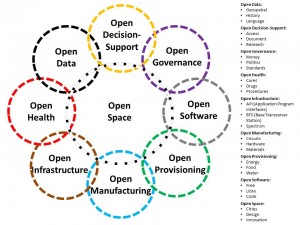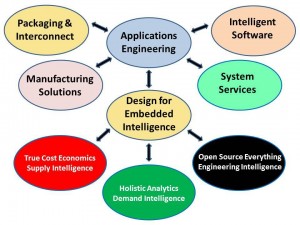 Robert Steele: Should Open Source Code Have a PayPal Address & AON Sliding Scale Rate Sheet? UPDATE 2
Robert Steele: Should Open Source Code Have a PayPal Address & AON Sliding Scale Rate Sheet? UPDATE 2
Creative Commons remains the single most brilliant contribution to the licensing conversation surrounding open source code, but it is not good enough. Anything that requires direct reach-back from a user to a coder will not scale, and is also out of touch with how code is compiled, with hundreds of bits from hundreds of coders comprising the whole.
Fair Source is one of many attempts to devise sliding scale and adaptable revenue and profit solutions for open source code. It begins to charge when users have fifteen or more employees and this sensible accommodation has tripled their downloads. But even this is not good enough.
I see the need for bits of code to have embedded within them both a PayPal-like address able to handle micro-payments (fractions of a cent), and a CISCO-like Application Oriented Network (AON) rules and rate sheet that can be updated globally with financial-level latency (which is to say, instantly) and full transparency. Some standards should be set for payment scales, e.g. 10 employees, 100, 1000 and up; such that a package of code with X number of coders will automatically begin to generate PayPal payments to the individual coders when the package hits N use cases within Z organizational or network structures.

I also see a need for a digital court in the future, whose fundamental premise is that Internet access and individual access to code is a human right, devising new rules for a sharing economy in which code is a cost of doing business at a fractional level in comparison to legacy proprietary code — between 1% and 10% of what is paid now.
I also see code eventually having embedded ethics as part of its integral consciousness. Code committed to anonymity, privacy, rights, and security will self-destruct if its use is perverted.
All open source manufacturing will have embedded code as we redefine smart away from the silly idea of adding IoT to legacy constructs and toward bottom up rebuilds that eradicate waste and do integral design, hence physical objects that are open source will also have a PayPal function and generate revenue for their original designers and contributors along the supply chain.
See Especially:
One Startup’s Heretical Plan to Turn Open Source Code Into Cash
See Also:
Category:Open Source Everything
The Future: Recent “Core” Work by Robert Steele
UPDATE 1: Thank you to the alert readers that jumped in with additional clarifying comments.
- The major value of this concept is that it makes the provenance of the source code crystal clear at all times — who wrote it, when, where, why, what company and related conditions.
- What is missing is the micropayments function. The financial industry as a whole seems reluctant to embrace micropayments and their transaction costs not only on the receiving end but also on the payments end — so perhaps open source needs to create its own financial industry and settlements house, or ask the BRICS new development bank to do this as a public service within a distributed blockchain network where the transactions costs are close to zero.
- Richard Stallman is again taking the lead, including a GPLv3 license in all code, either by reference or inline. If you can do this with GPL you can do this with any other licence including one that has a royalty schedule or other financial triggering capability.
- This may also be where IoT can be enhanced, with the operating assumption being that no future artifact will be dumb, but will have embedded intelligence (see graphic below).
- This can be implemented as a pilot by a small group, but widespread adoption would be more challenging. This is why MaidSafe, among others, needs to be thinking about the documentation and financial layers of code as it approaches its early milestones.

UPDATE 2:
The Fermat project for a cryptocurrency wallet is using blockchain tech for micropayments to developers
Note: this is a sample post from the new block, http://ose-21.org, where subscription is free and there is no advertising. Open Source posts are no longer posted at Phi Beta Iota, an exception such as this not-with-standing.



